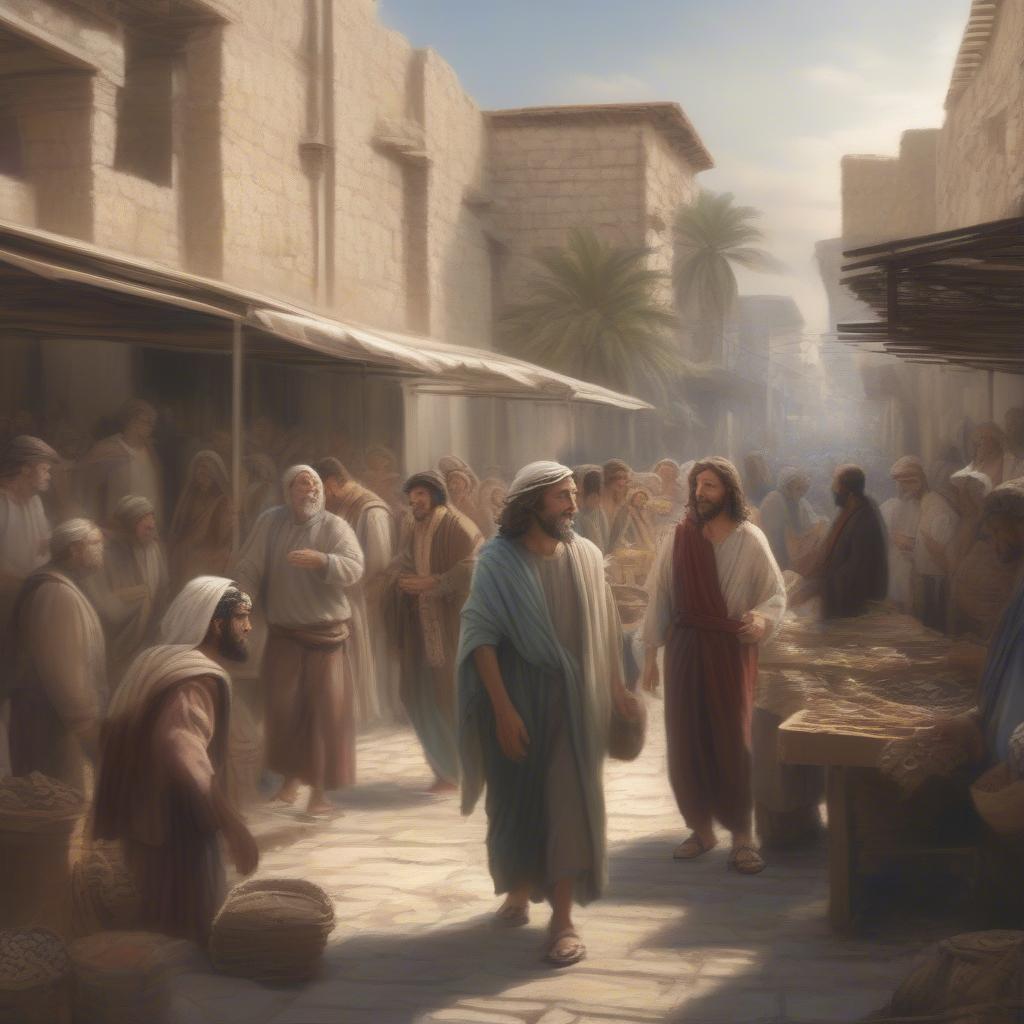
Matthew, also known as Levi, holds a unique position in the New Testament as both one of the twelve apostles of Jesus Christ and the attributed author of the Gospel of Matthew. His transformation from a despised tax collector to a devoted follower of Christ is a compelling story of redemption and discipleship. Who was this man, and why is his story so significant?
Table Content:
From Tax Booth to Discipleship: Matthew’s Call
Matthew’s life took a dramatic turn when Jesus called him to follow Him. Working as a tax collector in Capernaum, a bustling city on the Sea of Galilee, Matthew was likely viewed with disdain by his fellow Jews. Tax collectors were often seen as collaborators with the Roman Empire and were notorious for exploiting their own people. Yet, Jesus saw something more in Matthew. The simple command, “Follow me,” recorded in Matthew 9:9, transformed Matthew’s life. He left his lucrative, yet morally questionable profession, to embrace a life dedicated to serving Jesus.
The Gospel According to Matthew: A Jewish Perspective
The Gospel of Matthew, traditionally attributed to the apostle, offers a unique perspective on the life and teachings of Jesus. Written primarily for a Jewish audience, the gospel frequently connects Jesus to the Old Testament prophecies, demonstrating that he is the long-awaited Messiah. Matthew meticulously traces Jesus’ lineage back to Abraham, emphasizing his Jewish roots and fulfilling the promises made to the patriarchs. He also highlights Jesus’ teachings on the kingdom of heaven, a concept deeply rooted in Jewish tradition.
Matthew’s Feast: A Celebration of New Beginnings
Immediately following his call, Matthew hosted a feast at his home, inviting fellow tax collectors and other individuals considered “sinners” to dine with Jesus and his disciples. This act was a bold demonstration of Matthew’s newfound faith and his understanding of Jesus’ message of inclusivity. The Pharisees, strict adherents to Jewish law, criticized Jesus for associating with such individuals, but Jesus responded with a profound statement: “I have not come to call the righteous, but sinners to repentance.” (Matthew 9:13)
 Matthew's Feast with Jesus and Disciples
Matthew's Feast with Jesus and Disciples
Matthew’s Legacy: A Testament to Transformation
Matthew’s story resonates through the ages as a powerful example of transformation and the boundless reach of God’s grace. He went from being a social outcast, collecting taxes for a foreign power, to becoming one of Jesus’ closest followers and a key figure in the spread of the early Christian church. His gospel continues to be a source of inspiration and guidance for Christians around the world. His life serves as a reminder that no one is beyond redemption, and that a single encounter with Jesus can change the course of a life forever.
FAQ
What was Matthew’s occupation before becoming a disciple? Matthew was a tax collector.
What is Matthew’s other name in the Bible? He is also known as Levi.
Which Gospel is attributed to Matthew? The Gospel of Matthew.
Why was Matthew’s feast significant? It demonstrated Jesus’ inclusivity and Matthew’s understanding of his message.
How does Matthew’s story resonate with readers today? It’s a powerful testament to the transformative power of faith and God’s grace.
What is the main theme of Matthew’s Gospel? Jesus as the fulfillment of Old Testament prophecies and the Messiah.
What audience was Matthew’s Gospel primarily written for? A Jewish audience.

